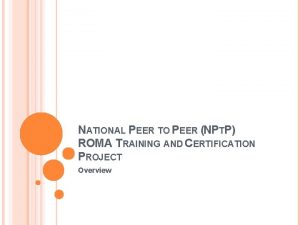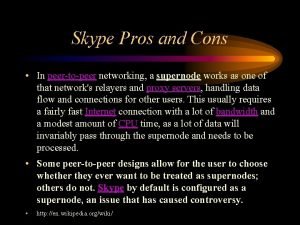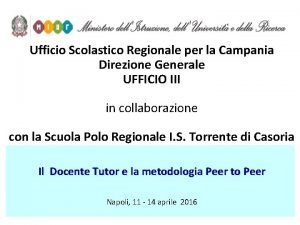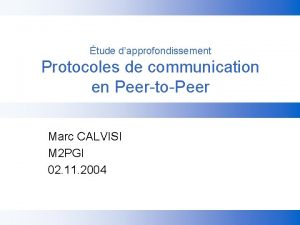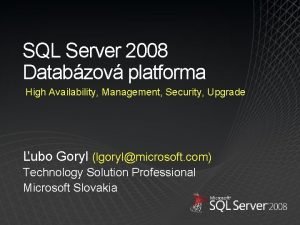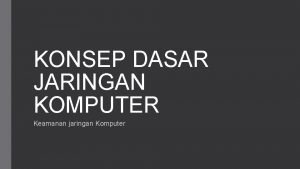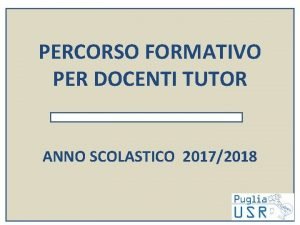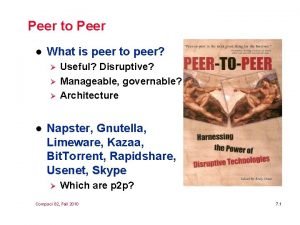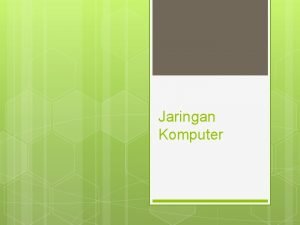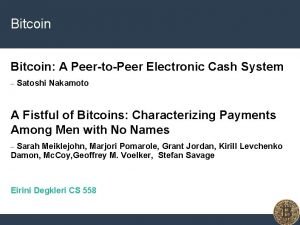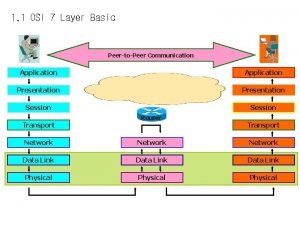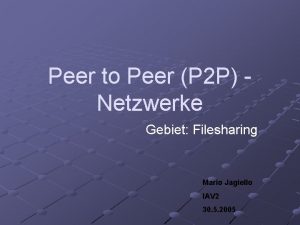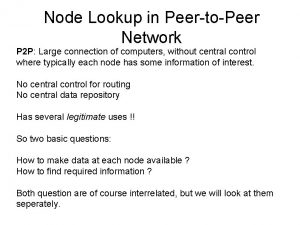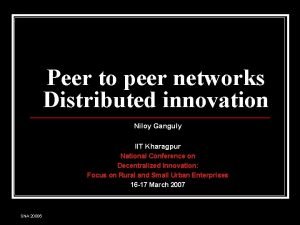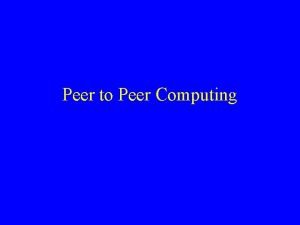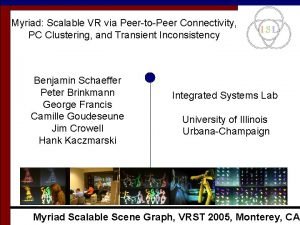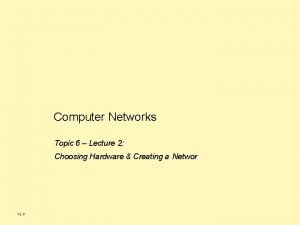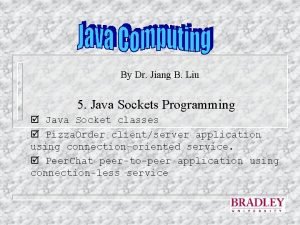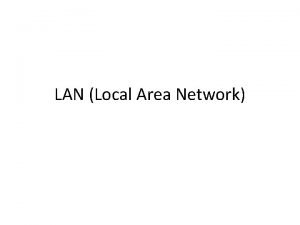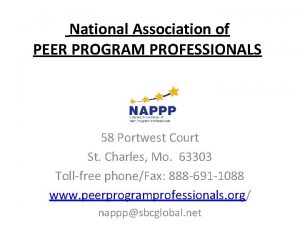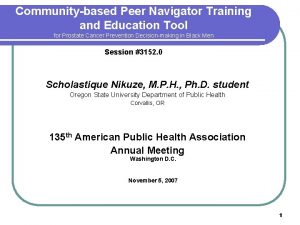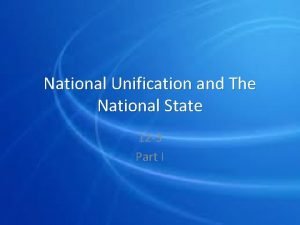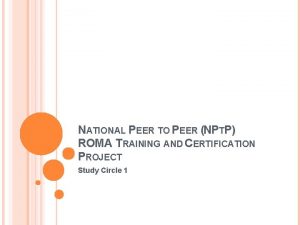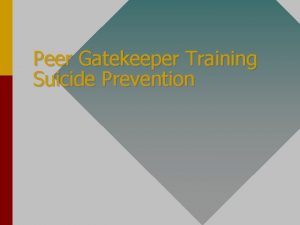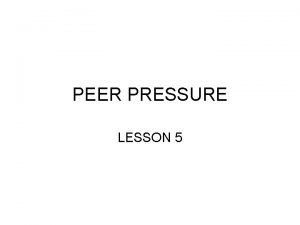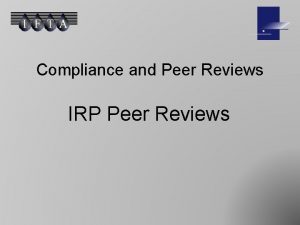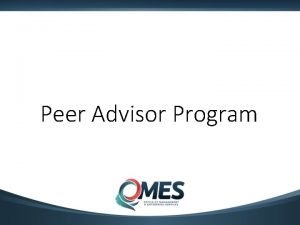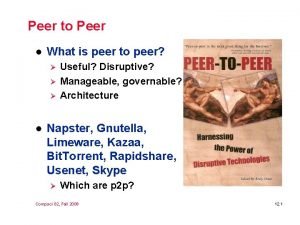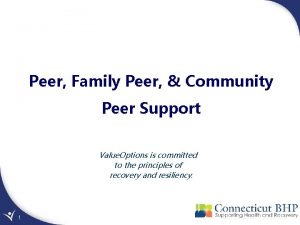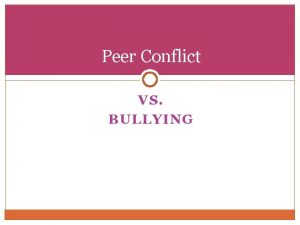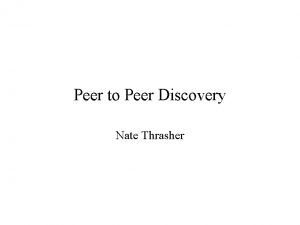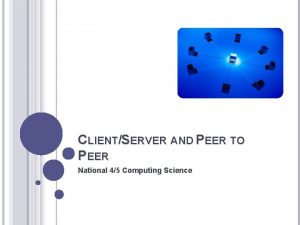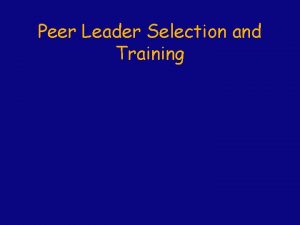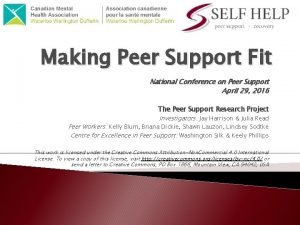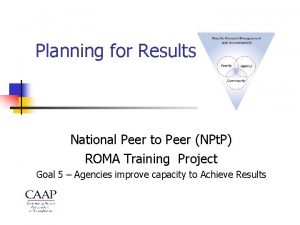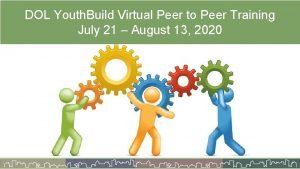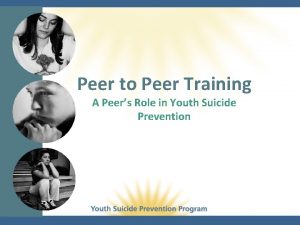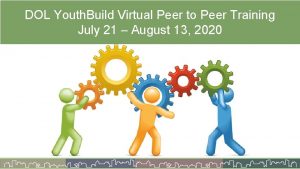NATIONAL PEER TO PEER NPTP ROMA TRAINING AND





























- Slides: 29

NATIONAL PEER TO PEER (NPTP) ROMA TRAINING AND CERTIFICATION PROJECT Overview

APPLICATION You must apply on line for the training and certification program.

APPLYING TO BECOME NCRT ORN CRI The application process for individuals interested in becoming a Nationally Certified ROMA professional is done on line at www. roma-nptp. org using the “Application” tab. This site is the home of the National Peer to Peer (NPt. P) Project and is the primary resource throughout the process. We are piloting a new process in 2016 to create Nationally Certified ROMA Implementers in addition to the Trainers

NATIONALLY CERTIFIED ROMA IMPLEMENTER (NCRI) Competencies Demonstrates knowledge of basic Introduction to ROMA curriculum key principles and practices � Content Knowledge includes key points related to the full ROMA Cycle � Is able to construct a scale � Is able to construct logic model with all elements matching � Is able to analyze logic models Demonstrates experience in working in a CAA or other level of the CAA network with implementation of ROMA a part of the job duties Demonstrates ability to fulfill job duties related to ROMA implementation effectively

HAVE READY WHEN YOU APPLY: A recent resume that you can upload Some thoughts about why you want to become an NCRI, which you will type into a text box in the application. The names and email addresses of three people who will support you through this process: your supervisor (employer), someone from the state CSBG office who is aware of the process and someone from the state Community Action Association office.

STEP ONE – COMPLETE ON-LINE APPLICATION Contact information: be sure to use an address that we can use as your “mailing address” (where I can send books) Identify people who will support you Say why you want to be a Nationally Certified ROMA Implementer (NCRI) Upload a resume Submit

STEP TWO - INVOICE When I receive notice of your application I will send an invoice to either your agency or another sponsoring agency. The invoice is for the Application Fee of $775. 00. If your agency is paying, I will send to you via email. You will direct the invoice to the appropriate process in your agency.

STEP THREE Once I have sent the invoice, the appropriate person will tell me when I can expect to receive payment. When I have the payment situation arranged, I open the e-course to you and send out workbooks to your mailing address.

PHASE I E-Course

PHASE I: THE ROMA E-COURSE There are 8 modules to the ROMA e-course, but you will only be taking 6 of them. They are designed to give a clear review of the foundational concepts, principles and practices related to ROMA. The course allows candidates to interact with the on -line instructor. There is opportunity for comments and feedback. This is a NON-GRADED course. It is designed to increase understanding. Average time for all modules is about 6 and a half hours.

AVERAGE E-COURSE TIME

6 MODULES 1. 2. 3. 4. 5. 6. History Building blocks Introduction to Outcomes Measuring and Using Results Introduction to the Logic Model Return on Investment

COMPLETE 6 MODULES The expectation is that you have all of the e-course modules completed a week to 10 days prior to the Classroom Session. This will provide time for preparation for the Classroom Session.

MECHANICS OF THE E-COURSE Interactive – participants read text and then answer questions to help deepen understanding of material. There is a “submit” button on each page. The final “submit” button (at end of the module) will indicate that all the work in the module is finished. Get message “finished” On-line instructor reviews and marks “completed” Interaction with on-line instructor through “notebook” button on each page

FINISHED, COMPLETED �Once you have submitted the final page of a module, the status for the module will change from “active” to “finished. ” �This sends an email notice to the online instructor, who will read your work and provide comments. �The on-line instructor will change the status to “completed”

PHASE II Classroom Session

FORMAT FOR CLASSROOM SESSION Phase II is designed to give Candidates an opportunity to begin to understand how the parts of the ROMA Cycle work together. Candidates will be asked to review some of their own agency documents prior to the sessions: � Mission statement � Needs assessment � Strategic plan � Annual report

INTERACTION DURING THE CLASSROOM SESSION The Classroom Session is Introduction to ROMA, which will review information from the e-course and provide activities to make the principles and practices come alive. It will provide an opportunity to discuss some of the questions you may have related to translating the principles into action. However, the classroom experience is just a “taste” of ROMA – and you will be demonstrating your understanding of the principles in your work at your agency during Phase III.

INTRODUCTION TO ROMA 5. 0 � Module 1: History, Perspective, Purpose � Module 2: Building Blocks – Mission and Community Assessment � Module 3: Developing Results Oriented Plans – Outcomes and Strategies � Module 4: Implementing the Plan � Module 5: Evaluating Performance Using Outcomes and Indicators � Module 6: Observing the Achievement of Results Using Outcome Scales/Matrices � Module 7: Managing Performance with the Logic Model

PHASE III Developing a Portfolio

PURPOSE OF PHASE III It is during Phase III that the material in the training is used to consider your agency’s practices. It provides opportunity for you to consider what it really means to be “results oriented” After the classroom session, candidates need to read the participant manual and think about how they will demonstrate their knowledge of and use of the principles.

WHY? This training and certification project is about the OUTCOME of producing Implementers that are able to apply the standard set of information in a uniform way. It is not about the OUTPUT of attendance or participation. As you will be given national certification it is important that you are able to demonstrate your competence in all of the phases of the ROMA Cycle.

HOW? If possible, NCRTs should be engaged in the support of new Candidates. � Our goal is to assure that there are teams of NCRTs and NCRIs in each state/region, so we hope they will be working together. Study Circle webinars will help you to put your portfolio together.

PILOTS WILL CREATE THE FRAMEWORK • Creation of a portfolio will become standardized as this new track is developed. • For the first candidates in 2016, the framework for the portfolios will be developed as they work through Phase III. • Ideas from the group as to what might go into the portfolio will be a part of the discussions during the Study Circle webinars.

STUDY CIRCLE WEBINARS 2 Study Circle Webinars will be provided to help candidate assemble their portfolios. Candidates will be asked to submit documents for review prior to each of the webinars. The format of the webinars will include discussing the samples submitted and working on establishing a scoring criteria. Additionally, the webinars will provide opportunity to better understand the connection among the various elements of the logic model.

PHASE IV Final Evaluation

PHASE IV – FINAL EVALUATION Once a candidate is ready for final evaluation, s/he will submit the portfolio and a “Request for Evaluation” form to the NPt. P project director. The candidate will then be given access to the online exam and the portfolio will be sent to a ROMA Master Trainer for review. Once the candidate submits the exam, it will also be reviewed by a ROMA Master Trainer. Note: the scoring criteria for the portfolio will be developed with six pilot sites across the country.

EXPECTATIONS AFTER CERTIFICATION: Provide annual report of ROMA related activities. Attend In-Service Continuing Education Program or other appropriate trainings offered by the Training Project to assure on-going skills and knowledge. Recertification every three years. The recertification process for each three-year period will be posted on the www. roma-nptp. org web site.

FOR MORE INFORMATION Barbara J. Mooney, Ed. D. , NCRT office: 724 -852 -2272; cell: 717 -756 -3109 Email: barbaramooney@windstream. net National Peer to Peer ROMA Training and Certification Project www. roma-nptp. org Association of Nationally Certified ROMA Trainers (ANCRT) www. ANCRT. org
 Roma nptp
Roma nptp Features of peer to peer network and client server network
Features of peer to peer network and client server network Cons of skype
Cons of skype Annotazioni sulla verifica effettuata peer to peer
Annotazioni sulla verifica effettuata peer to peer Peer-to-peer
Peer-to-peer Tim beamer
Tim beamer Peer to peer transactional replication
Peer to peer transactional replication Konsep dasar jaringan komputer
Konsep dasar jaringan komputer Esempio registro peer to peer compilato
Esempio registro peer to peer compilato Esempi di peer to peer compilati scuola primaria
Esempi di peer to peer compilati scuola primaria Relazione finale docente tutor compilata
Relazione finale docente tutor compilata Peer to peer l
Peer to peer l Peer to peer merupakan jenis jaringan… *
Peer to peer merupakan jenis jaringan… * Bitcoin: a peer-to-peer electronic cash system
Bitcoin: a peer-to-peer electronic cash system Ambiti operativi da supportare
Ambiti operativi da supportare Peer-to-peer communication in osi model
Peer-to-peer communication in osi model Peer to peer vorteile nachteile
Peer to peer vorteile nachteile Addresss look up
Addresss look up Peer-to-peer o que é
Peer-to-peer o que é Peer to peer computing environment
Peer to peer computing environment Peer intervention program
Peer intervention program Peer-to-peer o que é
Peer-to-peer o que é Peer-to-peer o que é
Peer-to-peer o que é Peer to peer network hardware
Peer to peer network hardware Peer to peer chat application in java
Peer to peer chat application in java Jaringan peer to peer diistilahkan dengan
Jaringan peer to peer diistilahkan dengan National peer helpers association
National peer helpers association Peer pressure resistance training
Peer pressure resistance training Peer navigator training
Peer navigator training National unification and the national state
National unification and the national state
